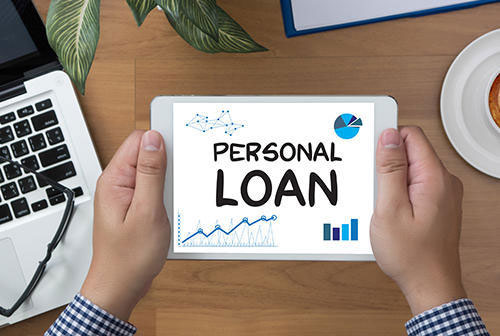The unexpected might happen at any time, and you may find yourself in a situation where you need to borrow money to meet expenses that your current budget cannot afford. This might involve financing a significant purchase, paying medical bills, or consolidating debt. At these times, borrowing money makes sense, and there are many loans to select from. Unsecured loans, like personal loans, are the easiest to understand.
What Are Personal Loans?
A personal loan is a sum of money that you can get and use for several uses at your discretion. Consolidating debt, making home improvements, or planning a dream wedding are all possible uses for personal loans. Loans for personal use are available through banks, credit unions, and online lenders. If you take out a loan, you'll have to pay it back over time, usually with interest. Personal loans may also come with additional costs from some lenders.
Personal Loan Pros and Cons
If you default on an outstanding mortgage payment, the bank can take your house. On the other hand, personal loans are often secured only by the borrower's good credit (unless you plan to get a secured loan). It's a good idea to weigh the advantages and disadvantages of an unsecured personal loan before applying for one.
The Pros

No property risk
Some personal loans are protected by collateral, while others are not. If you default on a personal loan, your lender has the right to seize whatever assets you put up as security. An unsecured personal loan can protect your personal property in the case of a default. To ensure that no matter what happens, you won't lose your house or any other possessions if you lose your job.
Application is easier
Since banks and credit unions aren't the only ones that provide personal loans, acquiring one isn't as difficult as it used to be. Peer-to-peer lending sites let you apply for a loan from the convenience of your own home. Obtaining one in less than a day is doable. If you have a good credit history and a high credit score, you may qualify for a loan. Additional verification of a steady and solid income source is also required.
The Cons

Your lender can pursue you if you default
Lenders can impose a lien on your assets even when you don't own any specific piece of property as collateral. It would help if you went to court to get a lien from a lender. Besides paying back the initial loan amount, you may also have to pay for attorney expenses and court charges if you default on the loan. In the case of a successful lawsuit, your credit record might be tarnished, and your payment could be taken.
Smaller loans
Lenders make money by collecting interest on loans, but there is no profit for the lender if the loan is not returned. To minimize the danger of default, lenders take extraordinary measures. If you're applying for an unsecured personal loan, they'll do a credit check and verify your job, and they may put a cap on how much they'll loan you (especially if your credit score is low).
Risks of Non-Secure Personal Loans
Inflationary Pressure
You don't have to accept a personal loan because you're eligible for one. There are personal loans with interest rates as low as ten percent, while others with speeds as high as three or four times. Lenders can charge any interest rate they wish, as long as it comes within regulations that govern interest rates on these loans.
When comparing yearly percentage rates, be careful (APR). Manipulating the APR is possible. Take a look at the total cost of the loan, which includes all fees, interest, and principal payments. That's a better indicator of how much the loan will cost in the long run.
Prepayment fees
Is it possible to pay off the loan early? If so, will you be penalized? Personal loans from banks, peer-to-peer (P2P) lending or other sources have different attitudes on early repayment; some lenders are more tolerant of early repayment than others. Read the tiny print carefully to ensure that you aren't penalized for taking advantage of early payment.
Upfront fees
Are there any fees associated with receiving the loan funds in your bank account? When applying for a loan, several variables to consider, such as upfront costs. If you're going to pay anything up in advance, make sure it's reasonable and in line with market rates. Please don't feel obligated to accept the first loan you are approved for; there are numerous lenders to choose from, each with its own set of stipulations.
Concerns about privacy
Even though banks and credit unions have strong privacy policies, other lending institutions may be more relaxed. Even though all lenders should adhere to the same privacy regulations as banks, some may not.







